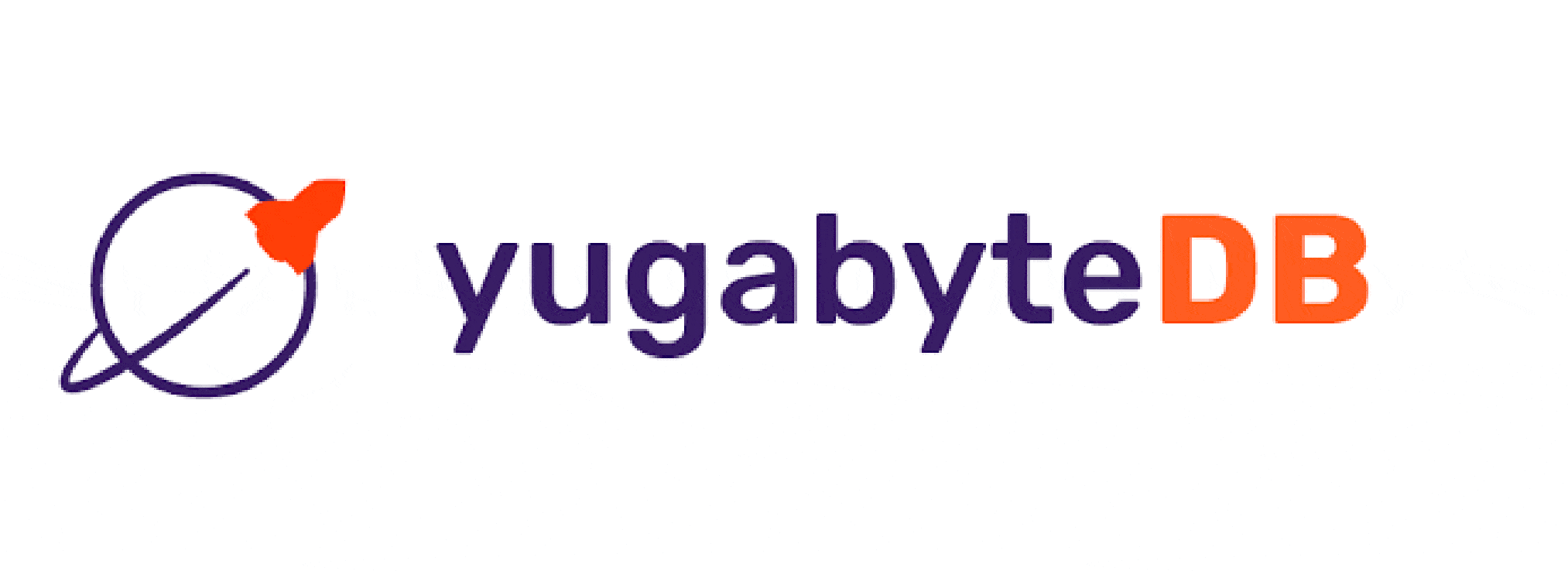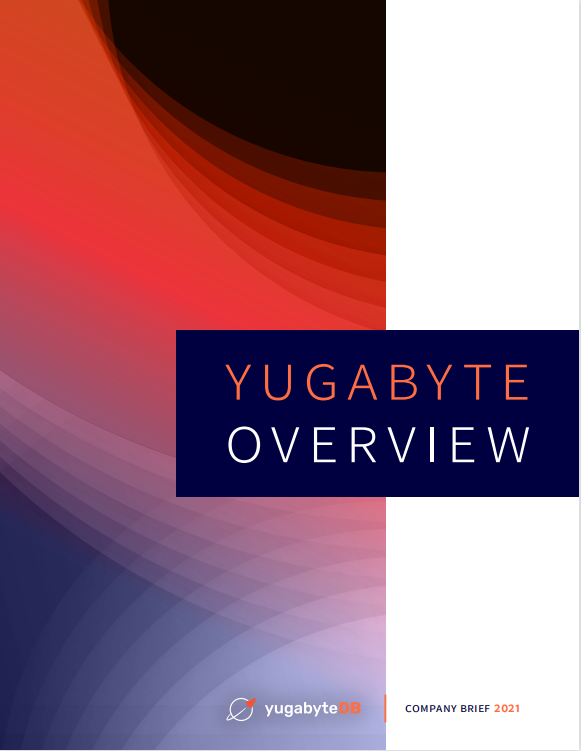
Yugabyte, Inc.
YugabyteDB
YugabyteDB is an open source distributed SQL database that uniquely combines enterprise-grade RDBMS capabilities with the horizontal scalability and resilience of cloud native architectures.
Value Proposition
YugabyteDB is a high-performance distributed SQL database for powering global, internet-scale applications. Built using a unique combination of the high-performance document store, per-shard distributed consensus replication, and multi-shard ACID transactions, YugabyteDB serves both scale-out RDBMS and internet-scale OLTP workloads with low query latency, extreme resilience against failures, and global data distribution. As a cloud-native database, it can be deployed across public and private clouds as well as in Kubernetes environments with ease.
YugabyteDB is developed and distributed as an Apache 2.0 open source project.
YugabyteDB brings together four must-have needs of cloud-native apps, namely SQL as a flexible query language, low-latency performance, continuous availability, and globally distributed scalability. Other databases do not serve all four of these needs simultaneously.
- Monolithic SQL databases offer SQL and low-latency reads but neither have the ability to tolerate failures nor can scale writes across multiple nodes, zones, regions, and clouds.
- Distributed NoSQL databases offer read performance, high availability, and write scalability but give up on SQL features such as relational data modeling and ACID transactions.
Yugabyte’s vision is to become the de-facto database for cloud-native applications in a multi-cloud world. The COVID-19 (coronavirus) pandemic underscores the importance of digitalization for economic and social resilience especially for Asia which has undergone multiple lockdowns.
The need to move the business from physical to virtual has hastened the adoption of technologies that can enable businesses to deliver digital services at a pace. Modern application architecture gives enterprises a competitive edge, enabling them to deliver new customer experiences and business processes quickly and cost-effectively. But traditional databases don’t fully address the design paradigms of cloud-native applications. They force trade-offs’ on performance, scalability, cost, and freedom from lock-in. NoSQL databases sacrifice consistency and relational capabilities in exchange for scale and resilience.
Equally challenging for modern applications, cloud provider databases such as Amazon Aurora and Google Spanner imposes limitations and lock-in and are expensive at scale.
YugabyteDB brings forward the following benefits:
Accelerate speed to market
YugabyteDB helps organizations accelerate time to market for their apps by standardizing on a single, distributed database to support a multitude of workloads requiring both SQL and NoSQL capabilities. This speeds up the development of applications while at the same time reduces operational complexity and licensing costs.
Reduce revenue impact due to downtime
Modern digital experience demands 24×7 availability. These are costly to achieve using traditional database technologies. YugabyteDB is designed to survive multiple failures from nodes to zones and even cloud regions and data centers. It supports rolling upgrades and patching without disruptions and in-built self-healing in case of an unplanned failure. This makes it easy to build resilience, scalable and low latency applications and services with an always-on data tier. This allows enterprises to focus on rapid innovation without worrying about the impact of downtime due to planned or unplanned failures.
Globalize data service deployment with strong data consistency
As enterprises deploy applications across multiple geographic regions and clouds, they often struggle to provide the efficiency and scalability needed to meet global user demands while simultaneously complying with local data regulations (e.g., GDPR) and compliance. YugabyteDB allows distributing data between regions and clouds with strong acid consistency. With the most complete global replication features including synchronous, asynchronous, geo-partitioning and hybrid deployment, it allows data to be placed closer to the users to drive performance, compliance with low latency.
Horizontal scalability to deliver efficiency
Elastic scalability is a necessity for modern system architecture, from the changing workload demands, infrastructure, and data services consumption perspective. With the advent of IoT and 5G, we have entered the highly distributed age of edge computing. Modern infrastructure design has been optimized for distributed computing from infrastructure (e.g. Kubernetes) to streaming (e.g. Kafka) APIs. YugabyteDB offers the ability to horizontally scale nodes globally, across regions, while remaining fully ACID compliant. YugabyteDB also delivers linear write/read scalability, plus auto-rebalancing, partitioning, and failover. These allow enterprises to balance infrastructure cost and SLA based on workload patterns without compromising on uptime.
Be cloud-native and agnostic for future-proofing
Business-critical applications are increasingly being deployed onto cloud-native microservice architectures running on containers and Kubernetes. As a result, these applications require the underlying data tier to offer capabilities that can prove incredibly challenging for traditional databases to support. Administrators and operators can scale YugabyteDB on-demand, across any infrastructure without downtime with a push-button deployment/scale model with no additional operational complexity. This speeds up the hybrid and multi-cloud adoption. Being infrastructure agnostic, allows enterprises to evolve the database according to where they want to run without the fear of lock-ins.
Innovate with familiar APIs’ to mitigate the fear of change
API compatibility refers to the fact that the database APIs offered by YugabyteDB servers implement the same wire protocol and modeling/query language as that of an existing database. Since client drivers, command-line shells, IDE integrations, and other ecosystem integrations of the existing database rely on this wire protocol and modeling/query language, they are expected to work with YugabyteDB without major modifications.
Innovation is a constant balance between change and outcomes. YugabyteDB has addressed this by building a multi-API database based on two commonly used APIs – one based on Cassandra (YCQL) and one based on PostgreSQL (YSQL) to keep the change as minimal as possible to achieve the desired outcomes at scale. We built a pluggable API layer that extends the power of proven SQL constructs like triggers, stored procedures, secondary indexes, etc. along with a horizontally scalable storage engine. This empowers enterprises to innovate quickly with YugabyteDB without learning a new query language paradigm instead of focussing on the business challenges.
YugabyteDB’s API compatibility is aimed at accelerating developer onboarding. By integrating well with the existing ecosystem, YugabyteDB ensures that developers can get started easily using a language they are already comfortable with.
YugabyteDB’s API compatibility is not aimed at lift-and-shift porting of existing applications written for the original language. This is because existing applications are not written to take advantage of the distributed, strongly consistent storage architecture that YugabyteDB provides. For such existing applications, developers should expect to modify their previously monolithic PostgreSQL and/or non-transactional Cassandra data access logic as they look to migrate to YugabyteDB.
IBM Solutions Used
IBM Cloud
Solution Details
- Country:
- Indonesia
- Philippines
- Singapore
- Thailand
- Industry:
- Banking/FSI
- Government
- Retail
- Telecommunications
- Solution Type:
- Modernization
Solution Specifications
Price Indication – Price can be provided upon request Terms – Can be provided upon request
For more information, do contact us via the contact form available on this page.

 Download - Yugabyte Corporate Overview
Download - Yugabyte Corporate Overview